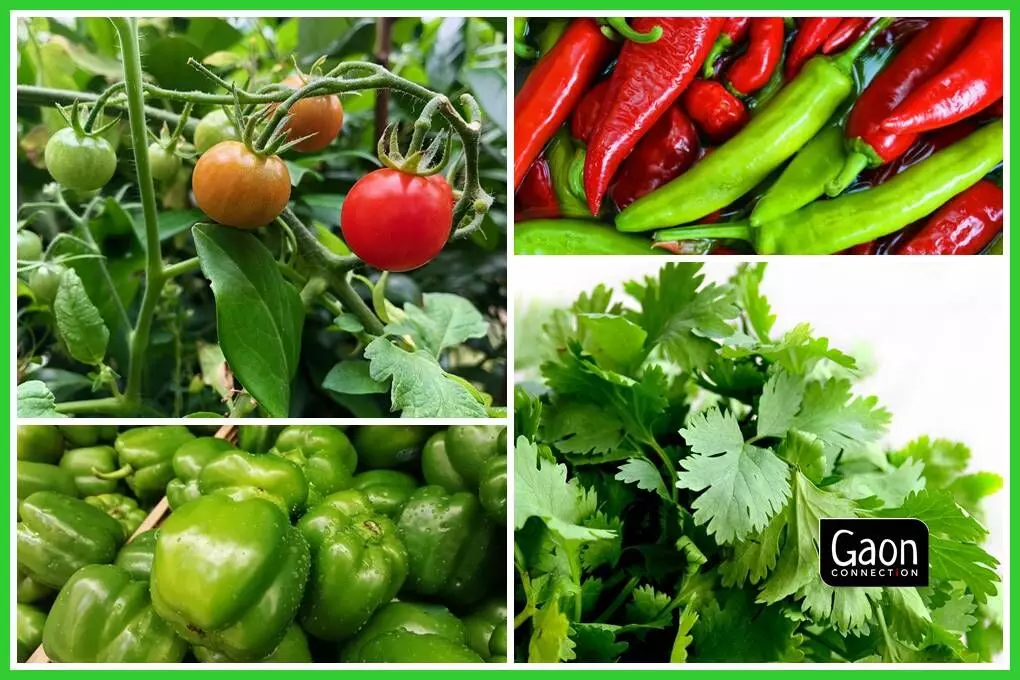Here's how kids can grow organic veggies at their homes
In overcrowded and cramped cities, there is often a lack of space for kitchen gardens. But children can grow tomatoes, chillies, coriander, capsicum and more in balconies and terraces. And use earthworm poo, too!
 Colonel Greenfingers 29 Nov 2023 11:45 AM GMT
Colonel Greenfingers 29 Nov 2023 11:45 AM GMT

Now you can contribute vegetables to your kitchen groceries!
Nurpur, West Bengal
It’s time for you kids to make a difference, so do the world a huge favour and begin to correct the things that are wrong today, one little thing at a time. We live in an era where even a lot of what we eat is fake and does more harm to us than nourish us. Our not very active lifestyles and addictions to TV, mobiles and computers only make things worse.
We need to be out of our homes, enjoy the outdoors and even grow our own food. And in this regard, I have but a few easy suggestions which will provide you with a small sense of satisfaction and more than that be a small and hopeful contribution to the planet and for your family.
So, try these and begin with growing food on your balconies, verandas or any outside space. Here are some easy to grow, found around the kitchen items that you can grow from seed. And the grownups will be happy!
Also Read: Tell your Kids about how Farmers Cultivate Wheat
Before you begin planting
To start, fill a box or pot with a combination of 1/3rd soil, 1/3rd compost and 1/3rd coco peat and you are ready to farm. These will be readily available online or at any good nursery. Get creative with the pots and planters!
Coriander or dhania: These humble seeds are found in most kitchens, just take a handful, crush the pods lightly into halves without applying too much force and sprinkle them into a pot or planter. In a couple of days you will have fresh coriander plants that can be used as a garnish and you will be adding flavour to your food. Do not overwater but keep the soil moist. Provide sunshine and welcome the bees that love the flowers!
Do not overwater but keep the soil moist while cultivating coriander.
Chilies: You know the dry chilies that mom uses for tadka? Take the seeds from them and plant them in pots you have prepared and voila, within about ten days you will have plants and you won’t have to buy chilies from the markets.
Tomato and Capsicum: Where these are concerned, slice both in the middle like for the salad slices one enjoys, place the slices in a pot and cover lightly with mud. Soon you will have plants that can be transferred into different pots and planters and a homemade supply of tomatoes and capsicum.
Watering and care for these three is important. Do not overwater, they will need water as per requirement so check the soil before watering. Aphids are pests that need controlling here and a simple solution of 1/4th neem oil mixed with 3/4th water will do the trick.
Earthworm Poo!
Well, everything said and done you need good fertilised soil for your enterprise. Even if you start all this with normal soil or buy compost from the market to begin with, you can make your own soil at home. Today at most places waste is segregated into dry waste and wet waste. Our interest lies in wet waste. Here is a chance for you to make a difference to the planet.
Collect your wet waste in plastic containers or large clay pots, and your workers will be those earthworms we played with as kids? Well, they serve a much higher purpose. Try getting even just a handful and put them into the wet waste and let them do their job. Just remember they prefer darkness so cover the containers with anything that prevents light from disturbing them and they will eat through all the kitchen waste. What will eventually remain is the most nutritious compost and it will have been a joint enterprise with you and your earthworms!
Composting and other notes:
- Do the composting work out in the open because if not handled properly it will smell.
- There is going to be liquid generated in the composting process (this is the smelly stuff) which must be drained. However, this liquid is loaded with the good stuff plants need so it can be mixed with water in your watering cans and sprinkled on to all your plants.
- Once the compost is ready it will look like dark brown soil, it’s earthworm poo after all! Like they say, good manure brings out the best vegetables. Now sift out the earthworms and let them work on the next wet waste from the kitchen while you go ahead proudly and fertilize your plants with your very own compost!
- Start small so you can look after your plants.
- Write and tell me how it goes and what you want to try and grow next.
Col Greenfingers retired from the Indian Army and now is a farmer somewhere near the Indo-Bhutan border.
This story was first published in Connection magazine's November 2023 issue. Connection is Gaon Connection's bilingual monthly for children. You can download the magazine here.
#tomatoes #capsicum #KitchenGarden #FoodProduction
More Stories




